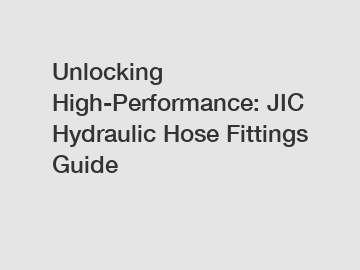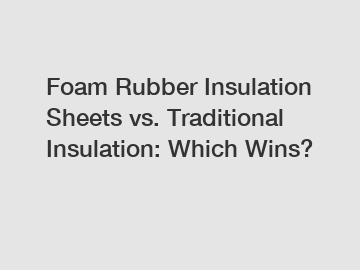As more people become aware of the health and environmental benefits of organic gardening, many are eager to dig in and grow their own produce. Whether you're exploring your green thumb for the first time or trying to bolster your gardening skills, there are plenty of helpful organic gardening tips specifically tailored for beginners. Here are ten questions that will give you the foundational knowledge you need to cultivate your own organic garden successfully.
1. What is Organic Gardening?
Organic gardening prioritizes natural processes over synthetic chemicals. This means using organic matter, such as compost, to nourish plants and natural pest control methods instead of pesticides. Embracing organic practices not only leads to healthier plants but also promotes biodiversity in your garden ecosystem.
2. Why Should I Choose Organic Gardening?
The benefits of organic gardening extend far beyond the garden gate. Organic produce is free from harmful pesticides and synthetic fertilizers, making it a healthier option for your family. Additionally, organic gardening practices help to improve soil health, encourage biodiversity, and reduce your carbon footprint by promoting local ecosystems.
3. How Do I Start an Organic Garden?
Starting an organic garden is simpler than you might think. Choose a sunny spot with good soil drainage. Begin by deciding what to grow based on your climate, space, and personal preferences. Heirloom varieties of fruits and vegetables are often recommended for their rich flavors and hardiness. Prepare your soil by incorporating organic matter like compost or aged manure to boost its fertility.
4. What Soil do I Need for Organic Gardening?
Healthy soil is the backbone of a successful organic garden. You need a well-balanced mix of sand, silt, clay, and organic matter. Test your soil to understand its pH and nutrient content, and then enhance it with organic amendments. Compost not only enriches the soil but also improves its structure and moisture-retaining capabilities.
5. How Do I Control Pests Naturally?
While pest control is a common concern, organic gardeners have a myriad of natural options. Introduce beneficial insects like ladybugs and lacewings that prey on harmful pests. You can also use companion planting to repel pests naturally. For example, marigolds can deter nematodes, while basil can repel flies and mosquitoes. If your pest problem escalates, consider homemade insecticidal soap or diatomaceous earth as a last resort.
6. What is Companion Planting?
Companion planting is a method by which certain plants are grown together to benefit each other. Some plants repel pests when grown alongside others, while some attract beneficial insects or enhance nutrient uptake. For example, planting tomatoes with basil can improve flavor and reduce pest issues. This ancient technique not only maximizes space but also promotes a healthier garden environment.
Additional resources:2024 Guide to Premium One-Piece Hose Fittings Quantity PricingPremium One-Piece Hose Fittings: Price Comparison Guide4 Tips to Select the Perfect Home Office SetupHow Mold Turnover Machines Revolutionize Manufacturing Efficiency?Unlocking Secrets: Choosing the Right Black SA Oil SealThe Benefits of Using Natural Black Seed OilKey Questions to Ask When Choosing Interlock Hose Fittings for Bulk Discounts7. How Often Should I Water My Organic Garden?
Watering needs can vary based on plant type, weather conditions, and soil type. Generally, it's best to water deeply and less frequently, encouraging roots to grow strong and deep. Early morning is the optimal time for watering to minimize evaporation and prevent disease. During hot, dry spells, you might need to increase your watering frequency while watching for signs of over or under-watering.
8. Do I Need to Use Fertilizers?
In organic gardening, fertilizer is not a necessity if you're maintaining healthy soil enriched with organic matter. However, when plants exhibit nutrient deficiencies, applying organic fertilizers like fish emulsion, seaweed extract, or compost tea can be beneficial. Always follow local guidelines regarding organic amendments to avoid over-fertilization, which can harm plants and soil health.
9. Are There Specific Tools for Organic Gardening?
While you don't need a garage full of tools to start organic gardening, a few essentials can make your journey easier. A quality trowel, hand rake, pruners, and a watering can or hose with a fine spray nozzle are vital. Additionally, consider investing in a garden fork for aerating soil and a compost bin to recycle kitchen scraps into nutrient-rich compost.
10. How Do I Deal with Weeds Organically?
Weeding is an inevitable part of gardening. Employing mulch—such as straw, wood chips, or even shredded leaves—not only suppresses weeds but also retains soil moisture. Manual weeding can be surprisingly therapeutic, and it allows you to closely observe your plants’ progress. For stubborn weeds, consider using boiling water or vinegar as organic herbicides, but apply them carefully to avoid harming your plants.
Organic gardening is not just about cultivating plants; it’s about nurturing an ecosystem that supports biodiversity, promotes health, and fosters a deep connection with nature. By answering these ten foundational questions, you are well-equipped to embark on your organic gardening journey. Happy gardening!
If you are looking for more details, kindly visit NPK 12-12-17+2MgO+TE blue color fertilizer, china fertilizer company, 14-14-14 fertilizer manufacturers.
Additional resources:How Do Stainless Steel Hose Clamps Bulk Discounts Work?Intelligent Drying Room Product: Traditional vs. Smart SolutionsExploring Intelligent Drying Room Products in 2024Rubber Membrane DiffusersThe Advantages of Implementing Sustainable Packaging Solutions10 Questions You Should Know about Acoustic Insulation Foam PanelsHow to Choose Reliable High-Performance Interlock JIC Hydraulic Hose Fittings Services?












Comments
All Comments ( 0 )